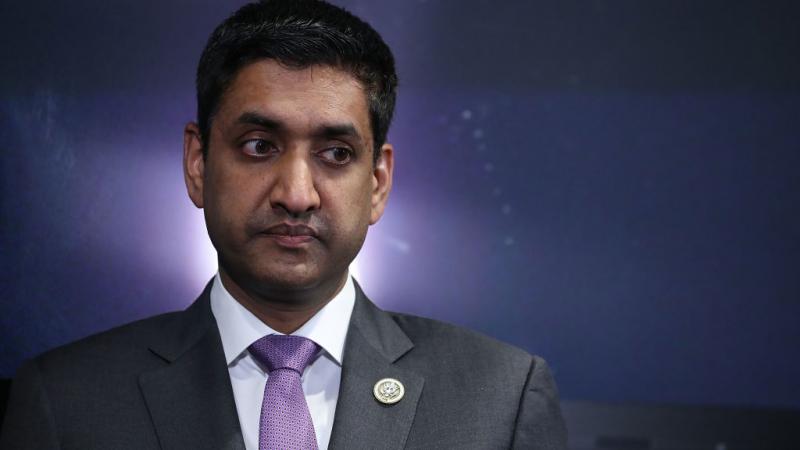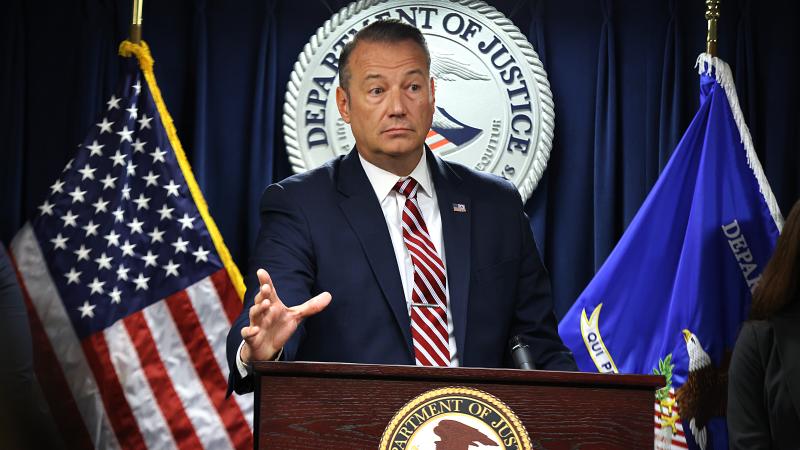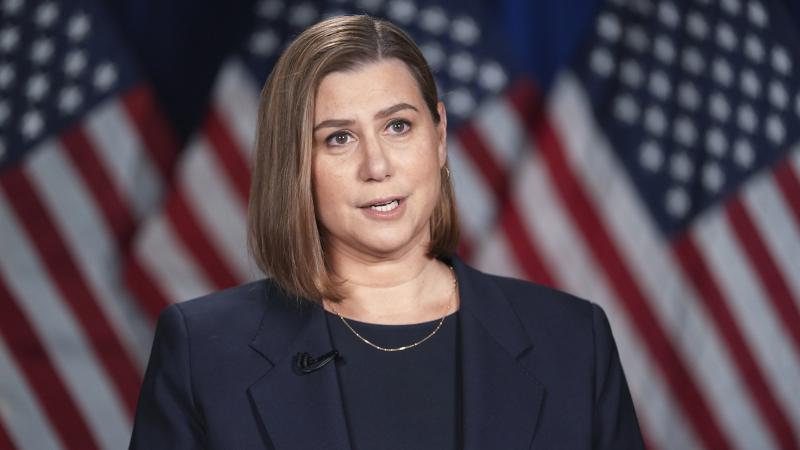California colleges defend diversity mandates, fairness of investigations against faculty lawsuits
Professor's fear of sanctions from new statewide DEIA policy is baseless, community college system argues. Another still has no classes after sharing chocolate that affirms biological sex.
The California Community Colleges system is facing a slew of summer litigation by tenured professors and a civil liberties group for allegedly eroding academic freedom through new diversity, equity, inclusion and accessibility mandates and weaponized investigations against critics of wokeness.
CCC Chancellor Sonya Christian and the Kern Community College District swung back Friday against Bakersfield College history professor Daymon Johnson in separate oppositions to his lawyers' motion for a preliminary injunction, arguing their client cannot show a real threat to his tenured position from their policies, past and potential investigations, and firing of a like-minded history colleague.
Johnson replaced Matthew Garrett in leading Bakersfield's right-leaning Renegade Institute for Liberty, which has repeatedly clashed with its Social Justice Institute, cofounded by Christian when she was president of the college.
Also tenured, Garrett is contesting his firing for "dishonesty" in disagreeing with liberal colleagues and unsupported claims of racism in a faculty diversity committee meeting and was already suing the college and district for First Amendment retaliation.
Kern also filed a motion to dismiss Johnson's case Friday, claiming "most" of his lawsuit is "based on speculation about what might happen in the future if he decides to act inconsistently with state regulations that promote diversity, equity, inclusion and accessibility." Johnson is represented by the Institute for Free Speech.
The Foundation for Individual Rights and Expression is representing a different group of faculty against Christian, the CCC Board of Governors and neighboring State Center Community Colleges District in a lawsuit filed Thursday.
The new statewide DEIA rules, which guide tenure and evaluation reviews, "forsake debate for top-down conformity, requiring faculty to endorse contested concepts" including antiracism and intersectionality, the suit argues. Its six plaintiffs "must immediately alter their teaching" at the Madera, Clovis and Reedley campuses "or risk negative job evaluations and termination."
One is Madera history professor David Richardson, who was placed on paid administrative leave this spring, allegedly for sharing chocolate that affirms the biology of sex at an academic open house. He was already suing the district for sanctions stemming from an online seminar in which he listed his gender pronouns as "Do, Re, Mi," but the suit hasn't moved in nine months.
Richardson told Just the News on Aug. 8 that his name was scrubbed from his classes on the district schedule a week earlier, "which was a pretty good hint that they were not going to bring me back" despite not notifying him of his fate within the requisite 90 days.
He later learned the district belatedly filed a 45-day extension for the investigation, making its new deadline Sept. 13. But students begin registering for spring semester in October so "it's not looking good," Richardson said Monday. Madera spokesperson Cory Burkharth said the college still has no comment.
Professor Johnson seeks to nullify "duly promulgated" regulations going back to 2020 to promote the "Fourteenth Amendment concepts of equity and inclusion for the benefit of the nearly two million students" in the CCC, Attorney General Rob Bonta argued on behalf of Chancellor Christian on Friday in opposition to Johnson's preliminary injunction motion.
Because the CCC regulations apply to the campuses, not "directly" to faculty, and "Christian is not a prosecuting authority," Johnson can't show the regulations impose "an immediate threat of harm to him" — much less irreparable — "or have directly impaired his ability to express himself freely," the filing states.
The CCC board "merely sets minimum hiring standards for personnel hired by each district," and it is "entitled to express its ideals and principles" on DEIA under 9th U.S. Circuit Court of Appeals precedent on the government's prerogative to restrict employee speech at odds with its own on LGBT issues, Bonta argues.
Unlike the Supreme Court's ruling in favor of a state employee who challenged compulsory non-member union dues, invoked by Johnson, CCC isn't forcing Johnson to "subsidize" speech he opposes, the filing also states.
The Kern defendants, and Bakersfield President Steve Watkins and Dean of Instruction Richard McCrow, are represented by the Liebert Cassidy Whitmore law firm. Board Vice President John Corkins is known for comparing faculty who challenge the college's social justice orthodoxy to his slaughterhouse-bound livestock, a comment for which he later apologized.
While the district invoked the board's ethics policy and California's unprofessional conduct code among others to fire Garrett, the opposition to Johnson's preliminary injunction motion states he has not explained how his own speech could get him in trouble on the same grounds.
Johnson has only cited his "planned classroom instruction" as a likely target of sanctions, without showing how it could violate the ethics policy — which prohibits "verbal forms of aggression, threat, harassment, ridicule, or intimidation” — or pointing to any "current specific warning or threat" to investigate him, according to the filing.
The investigation against Johnson for how he managed the Renegade Institute for Liberty's Facebook page, prompted by Social Justice Institute-affiliated professor Andrew Bond, ended in his favor more than a year ago and "there is no allegation that the District will ever follow up on that complaint or investigation," the defendants say.
The professor hasn't included the full policy in his filings "or even complete paragraphs that include the language he challenges" as unconstitutionally vague "so that this Court can read the policy in context," according to the filing, which calls it more "concise" than a Phoenix police department social media policy upheld by the 9th Circuit last year.
By his own admission, Johnson couldn't face near-term potential discipline for failure to comply with the new DEIA rules because his next evaluation period isn't for nearly three years, the motion to dismiss states.
Nothing suggests the investigation prompted by Bond was "egregious or unfair" and it ended with no "adverse employment action," and Johnson "merely speculates" the district will punish him because it "must comply with the DEIA regulations," the motion reads.
"Failing to comply with the regulations does not necessarily entail a negative evaluation, a negative evaluation does not necessarily entail substantive discipline, and substantive discipline does not necessarily entail termination," according to the filing.
He has made no "concrete plan" that would predictably get him in trouble, unlike Garrett, who "filed 36 separate, baseless complaints with the District, sparking 23 third-party investigations," the motion states.
Garrett's response to the charges said the district "mischaracterizes genuine concerns and complaints as somehow baseless abuses," and that it stretched his nine complaints — eight of which were defensive — into 36 by "counting each [offending] person … as a separate complaint."
The Facts Inside Our Reporter's Notebook
Documents
Videos
Links
- new diversity, equity, inclusion and accessibility mandates
- weaponized investigations
- critics of wokeness
- motion for a preliminary injunction
- firing of a like-minded history colleague
- "dishonesty" in disagreeing with liberal colleagues
- unsupported claims of racism
- already suing the college and district
- Institute for Free Speech.
- lawsuit filed Thursday
- placed on paid administrative leave this spring
- 9th U.S. Circuit Court of Appeals precedent
- his slaughterhouse-bound livestock
- he later apologized
- board's ethics policy and California's unprofessional conduct code
- Phoenix police department social media policy upheld by the 9th Circuit
- Garrett's response to the charges
















